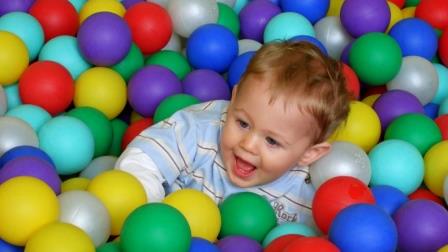Play – Plenty Of Ideas & A Few Pitfalls

Great quality, great fun play can be very simple to achieve and it certainly doesn’t have to cost much (or even anything!). However today’s busy world and social pressures can sometimes lead good play astray. Read on to discover some current problems with play which are best avoided and also to discover a host of fun ideas for fabulous play.
Please note that the word “parent” is used in this article to represent the wide range of adult caregivers who raise children.
Modern pitfalls with play
Screens: As we all know, it is undeniable that kids love screens – computers, i-pads, gaming devices, smartphones and more give them an instantaneous stimulous and reward. Screens can also act as a very handy ‘babysitter’ for busy parents who are trying to get things done. However, unfortunately these devices have been called ‘electronic cocaine’ and ‘digital heroin’ for good reason – children can actually become highly addicted and their use can interfere with normal brain development. Children simply do not need to view screens for ‘play’. Even Steve Jobs was a purposefully low-tech parent. The best thing you can do for your child is limit their screen time as much as possible whilst encouraging real and healthy play.
Stuff: Children today can be literally swamped with ‘stuff’. Unfortunately, what is meant to be kindness can become overstimulating, even more so for younger children. The good news is that high quality play does not need to involve a multitude of items. Sometimes removing a large volume of toys, storing and rotating their use can lead to children ‘rediscover’ and concentrate better and more happily on what is in front of them. Also, always be mindful that ‘stuff’ can never replace you. Whilst free play is very important, so is some quality time with a child’s adult caregiver (see below).
Scheduled activities: It can be easy to feel that in order to give your child the best chances in life, every moment must be scheduled with an exciting or enriching activity. It might therefore be a relief to know that free, unstructured, child-driven play is actually vital to their healthy development, creativity and stress release. Over-scheduling activities can create childhood overstimulation and anxiety, so a healthy mix of structured play/activities, free/unstructured time and time spent with you is best for all.
Time outdoors: Today’s children are playing indoors more than ever before for a whole host of reasons. Try to make sure that your child has safe, active time outdoors every day to keep them healthy and happy. Fresh air, nature and physical space are all important for their healthy development.
So, how much time should a parent spend playing with their children?
There can be a lot of guilt around parenting, especially where parents are juggling multiple roles and when current societal pressures around so called ‘perfect’ parenting are incredibly high. Quite frankly, if we’re not careful, it could all endanger the joy of parenting.
Realistically, all children and all family circumstances are different. Whilst there is no magic number of hours that parents should spend playing with their children, the Child Development Institute suggests that parents should find time every day to do something with their children, even if this is only for fifteen minutes at the end of a work day. If a parent has more than one child, then they should aim to make time to do something individually with each child.
In 2015, research by Milkie showed that building relationships and seizing quality moments of connection, not quantity, is most important for both parent and child well-being. “The amount of time doesn’t matter, but these little pieces of time do,” she said.
That’s not to say that parent time isn’t important. Plenty of studies have shown links between quality parent time — such as reading to a child, sharing meals, playing, talking with them or otherwise engaging with them one-on-one — and positive outcomes for kids. The same is true for parents’ warmth and sensitivity toward their children. It’s just that the quantity of time doesn’t appear to matter quite as much.
Parental stress, particularly in the mother, was shown to potentially have a negative effect on children. It is therefore important for parents to try to take good care of themselves (something that often falls to the bottom of the priority list), as parental well-being is important to that of the child.
How to play
Most children seem to be born with a natural ability to play, however some children need a little help to ‘learn’ how to play well. Children who play with a loved adult can benefit enormously…as can the adult! The benefits of having fun together cannot be underestimated.
You can show children how things work but it is important that playing is fun, so if they want to experiment then let them. Don’t push any child too hard as he or she will develop in their own way and in their own time – it may therefore be unhelpful to compare them to other children.
Giving children access to a range of playthings (at or outside of the home) will help your child to play and learn in a number of ways. Here are some easy yet effective methods to start with – then just keep adding to them when you have new ideas:
- Playing with dough, drawing and painting pictures, dressing up and playing with dolls can encourage creativity, imagination, expression of feelings and understanding of others
- Sand, water and messy play can be an early introduction to science and maths
- Building blocks, shape sorters, jigsaws and construction toys can help with recognising different shapes and sizes, putting things in order and developing logic
- Playing ball games, dancing, running, climbing all help to develop body movement, strength, flexibility and co-ordination skills
- Games help with turn taking, sharing and mixing with others
- Singing, playing simple music instruments and listening to music all help to develop rhythm, listening and hearing
- Reading to/with children encourages literacy skills and recognition of the world
- Storytelling and acting these out/dramatic play allows children to make sense of the world in which they live by acting out situations before they happen and by copying what they see around them.
And finally…top tips for play
- There are many more play opportunities and learning benefits with “true toys” such as blocks and dolls, with which children use their imagination fully, than from passive toys that require limited imagination
- Play libraries or ‘toy swaps’ with friends can be an excellent source of toys which can be enjoyed and changed without cluttering your house for years to come
- Play dates at your or friend’s houses with other children are free and encourage social skills as well providing the opportunity of playing with different toys
- Second-hand toy sales are a very cost-effective way to buy and sell toys…and they’re environmentally friendly
- The same toy can create multiple learning experiences for a child – you do not need to continually expose children to new toys for them to learn new things or to invent new ways of playing
- The most valuable and useful character traits that will prepare children for success arise not from extracurricular or academic commitments but from a firm grounding in parental love, role modelling, and guidance – all of which can be supported by play
- Parents might feel rusty at playing to begin with – that’s fine and to be expected. Take it slowly, have fun, let go and don’t be afraid to be silly – the children will love it…and you might just love it even more, all whilst creating strong bonds with your children.
- Try to enjoy the years when your children wish to play with you – it can seem really difficult when you are exhausted but you won’t regret time spent playing with your children. In fact, parents often say that in the end it all goes very quickly and that they really miss the playing days!
Please click here to read Part 1 of this article and to learn more about National Playday.
If you are worried about any aspect of your child’s health, please book an appointment by calling 01962 828715 or emailing info@thewalcotepractice.co.uk.


